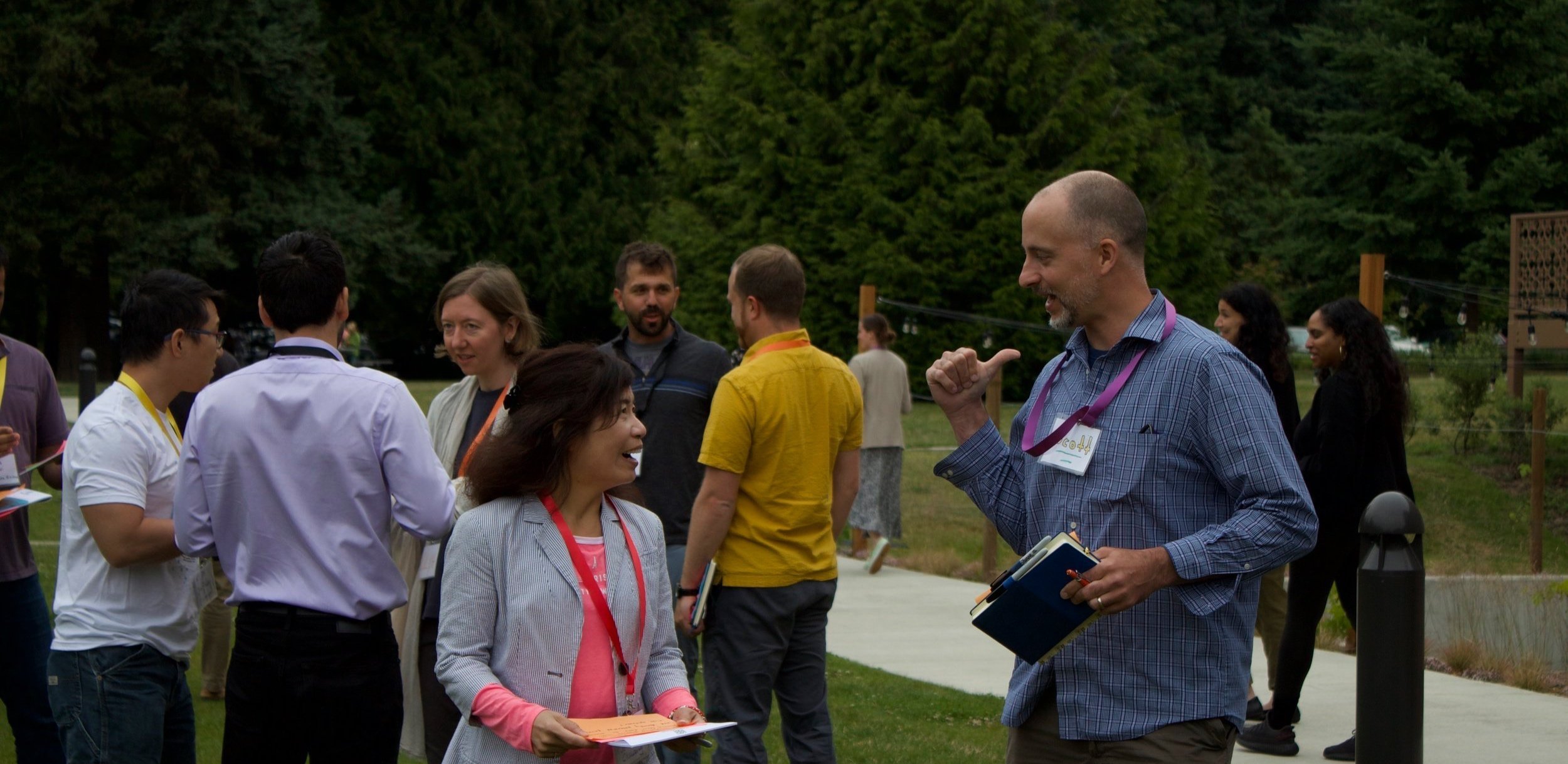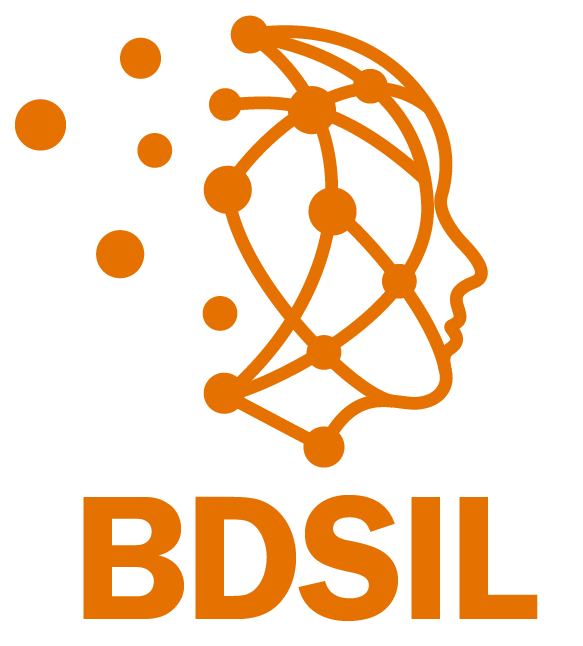
Quantitative Approaches in Spatial Multi-Omics for Guiding Personalized Medicine
June 16 - 20, 2025 · Nashville, Tennessee
2025 BDSIL
“The knowledge and skills I gained from this training will greatly benefit my long-term career development, and the challenges I faced helped me maintain my passion for science and overcome obstacles.”
— Dr. Pei-Ying Chuang, BDSIL 2024 Participant
How can those with expertise in the development and application of spatial multi-omics technologies join forces with biomedical data science experts to provide insight and guidance on using and leveraging these tools in cancer and rare disease research?
The goal of the 2025 Biomedical Data Science Innovation Lab (BDSIL) is to foster the formation of new interdisciplinary collaborations to generate creative strategies focused on the use of data science approaches in spatial multi-omics, particularly as applied to understanding cancer and rare diseases.
The BDSIL will bring together quantitative and biomedical researchers with expertise spanning mathematical, statistical, basic science, and clinical biomedical fields to address critical topics in spatial multi-omics and its role in advancing our understanding of complex biological systems. Members of the NIH-NCATS community have often played an important role in discussions such as these and are strongly encouraged to apply.
The term “biomedical” is used broadly to include basic science, behavioral science, biology, mental health, clinical research, epidemiology, population-level science, and other areas where spatial multi-omics and predictive modeling can drive discovery. The term “quantitative” encompasses applied mathematics, computer science, data science, pure mathematics, machine learning, and statistics that relate to the development of data science techniques for spatial multi-omics. We also seek input from clinical investigators on how best to instruct researchers and data scientists in the clinical importance of spatial multi-omics techniques, and how to effectively integrate these tools into biomedical research, educational curricula, and treatment practices.
Potential research project topics for the BDSIL will span a variety of dimensions, such as using multi-omics data to inform precision medicine approaches, integrating spatial transcriptomics with imaging data to identify new cancer subtypes, or employing machine learning techniques to analyze the high-dimensional data generated from spatial multi-omics experiments. It is anticipated that the project topics and collaborations formed during the workshop will lead to new peer-reviewed publications and/or NIH/NSF grant proposals to further develop, refine, and test novel hypotheses. These original research ideas may offer new insights into the mechanisms driving cancer and rare diseases and lay the groundwork for future advances in personalized medicine and therapeutic development.
Virtual Microlabs
May 2 • May 16 • May 30
12 - 2 PM ET
The BDSIL is specifically designed as an extended, hybrid program featuring online team-building activities, scientific and mentor presentations, and lectures by guest speakers, culminating in a five-day, in-person intensive event in June 2025 at Hutton Hotel.
In May 2025 our facilitation team will host three BDSIL kick-off events that we call "microlabs". These virtual meetings will allow the selected participants to get to know each other and get a head start on formulating research ideas before the in-person BDSIL.
At the BDSIL, under the guidance of scientific mentors, interdisciplinary teams of participants will work together to ideate and develop pilot projects for tackling selected problems. Learn more about the BDSIL definitions and roles and our 2025 mentors.
Application Procedure
The application period for the 2025 BDSIL has closed. Thank you for your submissions.
To be eligible, candidates must be at least 18 years of age and U.S. citizen or a permanent resident at a U.S. institution. Applicants must be in the quantitative and data sciences or biomedical fields, with a focus on spatial multi-omics, data integration, quantitative methods, and mentorship, at the late-stage postdoctoral or early-stage junior faculty level. The application will ask candidates to describe their background, research, interests in spatial multi-omics, contributions to research, and their commitment to collaborative/team science.
Quantitative and data science researchers should provide examples of the types of data science approaches, methods, and techniques they utilize and demonstrate their potential to apply these methods to research areas where spatial multi-omics data can be integrated, including mathematical modeling, machine learning, and data visualization. Investigators with firsthand experience working with software and visualization platforms such as Python, R, MATLAB, Gephi, Tableau, and 3D visualization/animation are encouraged to apply.
Biomedical researchers should highlight their ability to leverage data relevant to empirical research, clinical trials, multi-site consortia, etc. Faculty engaged in spatial multi-omics-focused workshops, mentorships, T32, and other major training awards are encouraged to share their teaching materials.
Click on the boxes below to learn more about our suggested areas of expertise. More details can be found on our Expertise Needed page or on this PDF.
-
"Biomedical" expertise can involve but are not limited to:
Young investigators working at all levels of basic, experimental, and clinical genomics should consider applying. Their work across the -omic spectrum will provide biological and clinical expertise in gene form and expression as well as metabolomics, epigenomics, etc. The richness of these datatypes are an important element in data science applications. Importantly, people with the following areas of expertise are of interest:
Basic and Clinical Neuroscience
Behavioral
Bioethics
Biology
Clinical Research
Environmental Health
Epidemiology
Medical Informatics
Mental Health
Population-Level Science
University-Level Education
-
"Quantitative" expertise can involve but are not limited to:
Data and computationally-focused late-stage post-doc or early-stage junior faculty level investigators having research questions in novel quantitative methods, data analytics, statistical modeling, machine learning, and data visualization. This is important since spatial multi-omics depends upon massive quantities of regionally-specific data from the body. Facility with advanced mathematics, programming languages, and high-performance computing are particular areas of strength we wish to engage. These areas also include:
Applied Mathematics
Artificial Intelligence
Biostatistics
Computer Science
Data Science
Natural Language Processing
Pure Mathematics
Quantification of Health Disparities
Review of applicants will be rigorous, and not all candidates will be selected to attend. Particular emphasis will be placed on candidates demonstrating a strong commitment to collaborative/team science and those with a high-impact track record of peer-reviewed publications. A committee will select approximately 30 applicants to participate in this one-of-a-kind event. Selected candidates will have their travel and lodging expenses fully covered, with the expectation that they engage in all virtual microlabs and remain for the entire five-day event in June 2025.
Questions? Please see our FAQs or contact us.
"I made so many great connections and left bursting with energy."
— Dr. Chelsea Marie Braun, 2023 BDSIL Participant
Useful Links on the Responsible Conduct of Research
NIH Responsible Conduct Research Training Sourcebook
University of Pittsburgh Guidelines for Ethical Practices in Research
University of Virginia Research Compliance and Training Policies







